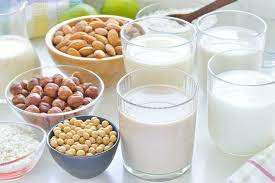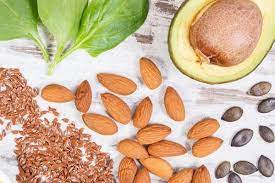What is Plant Based Diet
A plant-based diet is a dietary approach that emphasizes the consumption of foods primarily derived from plants, including fruits, vegetables, whole grains, legumes, nuts, and seeds. The central idea behind a plant-based diet is to focus on foods that come from the earth and minimize or eliminate the consumption of animal products.
Here are some key principles of a plant-based diet:
- Emphasis on Plants: The majority of the foods in a plant-based diet come from plant sources. These foods provide essential nutrients like vitamins, minerals, fiber, and antioxidants.

- Limited Animal Products: While a plant-based diet doesn’t strictly exclude all animal products, it minimizes their consumption. Some people on a plant-based diet may choose to eliminate meat, poultry, fish, and dairy products altogether, while others may include small amounts of animal products on occasion.

- Healthy Fats: Plant-based diets often emphasize the consumption of healthy fats, such as those found in avocados, nuts, seeds, and olive oil, while reducing or eliminating saturated and trans fats commonly found in animal products and processed foods.

- Whole Foods: Whole, minimally processed foods are preferred over heavily processed foods. This means choosing whole grains over refined grains and opting for fresh fruits and vegetables over canned or processed ones.

- Diversity: A well-balanced plant-based diet includes a diverse range of foods to ensure an adequate intake of essential nutrients.

- Environmental Considerations: For some people, a plant-based diet is also motivated by environmental concerns, as plant-based diets tend to have a lower carbon footprint compared to diets heavy in animal products.

It’s important to note that a plant-based diet can vary widely, and individuals may interpret and follow it in different ways based on their preferences, cultural backgrounds, and health goals. Some people may choose to be strict vegetarians or vegans, while others may adopt a more flexible approach, occasionally including small amounts of animal products.
Read More:- Discover 5 incredible advantages of pulses for managing your health
When following a plant-based diet, it’s crucial to ensure that you are meeting your nutritional needs, especially for nutrients like vitamin B12, iron, calcium, and omega-3 fatty acids, which are typically found in higher amounts in animal products. Consulting a registered dietitian or nutritionist can be helpful in creating a well-balanced and nutritious plant-based eating plan.
Green Goodness: 5 Plant-Based Powerhouses for a Vibrant and Healthy Lifestyle
Disclaimer:
The information in this post is for general informational purposes only and not a substitute for professional advice. Consult qualified experts before making any changes. Engage in activities at your own risk, considering your abilities. Individual results may vary. Sponsored content may be included. The post does not diagnose or treat medical conditions. Use critical thinking and verify external sources. By engaging, you accept responsibility for your decisions.






